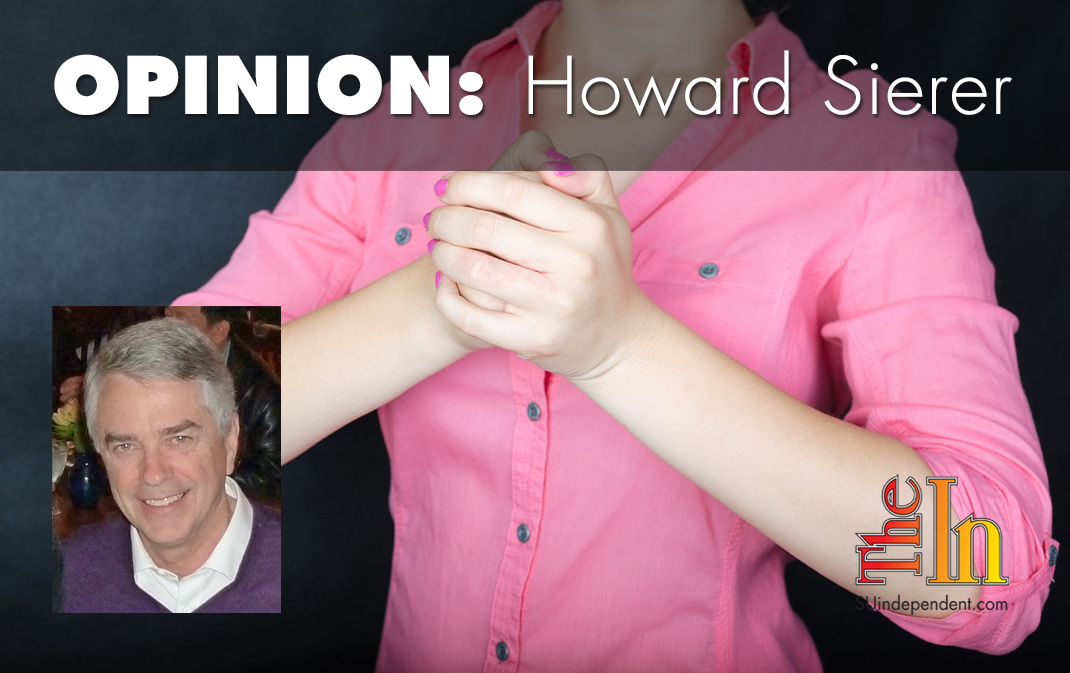
Women and identity politics
Many Democrats are still distressed by Hillary Clinton’s 2016 loss and continue casting about for explanations.
Some blame sexism and worry about voting for a woman. Others look for ways to appeal to white men without college degrees. Or maybe Clinton’s Washington insider credentials turned away some voters.
A recent research paper by Pavielle Haines and Seth Masket asked to what degree news stories discussing Clinton’s election loss could be influencing the coming 2020 election and whether reactions to such stories vary with readers’ social identity.
The paper describes their survey of 845 white male and female Democrats. Half the group was shown a fictitious New York Times article (actual “fake news”) stating the party had lost the 2016 election — and didn’t take back the Senate in 2018 — because it “focused too much on identity politics.”
All survey participants — both those who’d read the fake news and those that hadn’t — were given profiles of 20 generic presidential candidates who varied by gender, race, ideology, and top policy issues. The authors intended to see whether survey respondents’ candidate choices were influenced by the identity politics story.
They found that women are much more likely than men to believe that Democrats’ continuing focus on identity politics caused Clinton’s loss and to shy away from candidates whose campaigns are centered on identity issues. As a result, they were 50 percent less likely to pick a female 2020 presidential candidate.
Correspondingly, women were more likely to pick an “economically-oriented candidate” over those focused on ideals like fairer prison sentences for nonviolent criminals, reducing racial discrimination in criminal sentencing, or workplace discrimination.
Interestingly, reading the article had little effect on men. They were about as likely to blame Clinton’s loss on identity politics whether or not they had read the article.
The authors concluded that the way Clinton’s loss is explained by the media and by the candidates themselves influences how voters think about 2020. They suggest this may explain some of Joe Biden’s early strength since he’s been stressing his appeal to working-class Trump voters.
The survey was limited in scope. After record minority voter turnout for Obama in the 2008 and 2012 elections, significant numbers of them sat out the 2016 primary and general elections. Hence, a lot of media postmortem analysis focused on white voters as did the authors’ survey.
Further, the survey’s fake candidates differ from today’s actual 2020 Democratic presidential nomination hopefuls. Today’s issues and political dynamics are significantly different than the Clinton-Sanders primary face-off in 2016.
Nonetheless, it’s clear that women face a complicated dynamic in the coming Democratic primaries. If they opt for someone they believe is electable as discussed in the New York Times, they may find themselves foregoing female candidates. But if they ignore electability, they risk forfeiting the election.
Two of my favorites in the 2016 Republican primaries were Carly Fiorina and Ben Carson. Both had highly successful private sector careers, and nether was a professional politician. I’d have gladly taken them as the party’s nominees for president and vice president in either order. My enthusiasm was based on their experience and their positions on the issues, not on their social identities.
Selecting candidates based on their social identities is like selecting athletes based on their appearance instead of their demonstrated performance. To the extent Democratic voters fixate on candidates’ gender, race, ethnic background and sexual identity instead of candidates’ policies, they’ll end up backing a losing team.
The viewpoints expressed above are those of the author and do not necessarily reflect those of The Independent.
How to submit an article, guest opinion piece, or letter to the editor to The Independent
Do you have something to say? Want your voice to be heard by thousands of readers? Send The Independent your letter to the editor or guest opinion piece. All submissions will be considered for publication by our editorial staff. If your letter or editorial is accepted, it will run on suindependent.com, and we’ll promote it through all of our social media channels. We may even decide to include it in our monthly print edition. Just follow our simple submission guidelines and make your voice heard:
—Submissions should be between 300 and 1,500 words.
—Submissions must be sent to editor@infowest.com as a .doc, .docx, .txt, or .rtf file.
—The subject line of the email containing your submission should read “Letter to the editor.”
—Attach your name to both the email and the document file (we don’t run anonymous letters).
—If you have a photo or image you’d like us to use and it’s in .jpg format, at least 1200 X 754 pixels large, and your intellectual property (you own the copyright), feel free to attach it as well, though we reserve the right to choose a different image.
—If you are on Twitter and would like a shout-out when your piece or letter is published, include that in your correspondence and we’ll give you a mention at the time of publication.
Articles related to “Women and identity politics”
The Women’s March on Washington: Since when are all women leftists?



